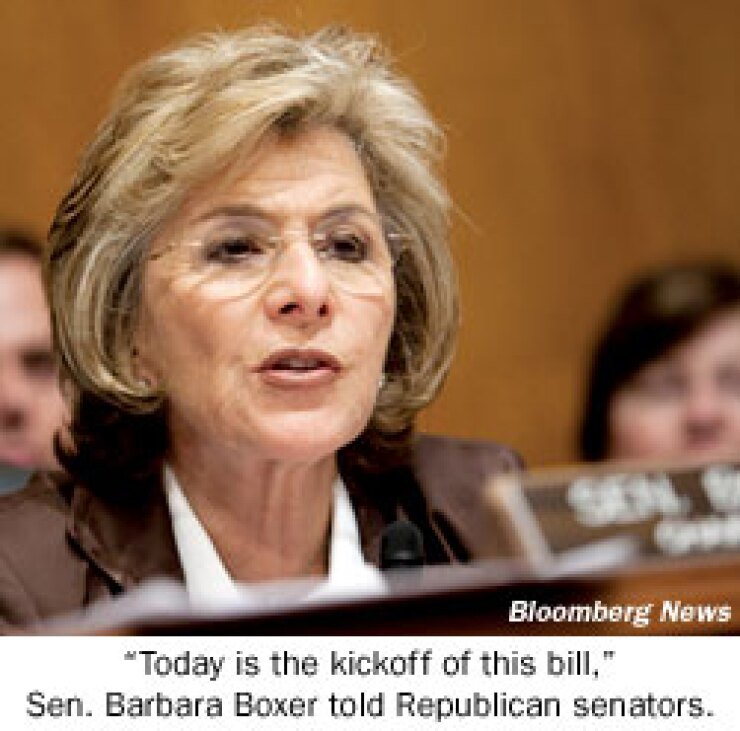
WASHINGTON — The Obama administration will unveil its principles for a new multi-year transportation bill within the next 90 days, Transportation Secretary Ray LaHood told reporters yesterday at a conference here sponsored by the American Association of State Highway and Transportation Officials.
The Senate also will get cracking on its own multi-year bill, building on existing House legislation, Sen. Barbara Boxer, D-Calif., chairwoman of the Senate Environment and Public Works Committee, said during a hearing yesterday.
The administration’s principles for reauthorization of the Safe, Accountable, Flexible, Efficient Transportation Equity Act: a Legacy for Users, or SAFETEA-LU, which expired Sept. 30, would precede actual White House legislation, which is expected next year.
“A bill is a little bit bigger than” a set of principles, LaHood said during the conference.
He would not say if the principles will contain recommendations for a revenue source to pay for a multi-year program.
A gasoline tax increase and a mileage tax have risen to the top of the debate over revenue options, but the administration has said it does not support either of those options right now.
“I know it’s easy for people who are not elected to talk about raising the gas tax,” LaHood said in a speech. “They don’t have to face the voters.”
At the Senate committee hearing yesterday, Boxer pledged to Republican colleagues that her panel will hold a series of hearings and write a transportation reauthorization bill this year, using as a starting point the bill sponsored by Rep. James Oberstar, D-Minn., that was approved last year by the House Transportation Committee’s highways and transit panel.
“We will do a bill that you will participate in and we will get that bill done. Today is the kickoff of this bill,” Boxer told Sens. George Voinovich, R-Ohio, and Christopher “Kit” Bond, R-Mo.
Boxer urged witnesses at the hearing, which included representatives of AASHTO and the American Road and Transportation Builders Association, to do a section-by-section critique of Oberstar’s bill.
“How much of it would you agree with?” she asked. “Where do you have differences?”
Pete Rahn, director of the Missouri Department of Transportation, who testified on behalf of AASHTO, complained about states not being able to count on money from the highway trust fund, which is being kept alive by a series of short-term extensions and general fund transfers.
President Obama on Tuesday signed an extension of the program through March 28.
“The entire realm of highway and transit construction means you need a long-term stream of revenues” to provide certainty for planning, Rahn said. “We simply can’t do that on 30-day fits and starts.”
Boxer pushed Rahn and other witnesses to lobby House members to pass the Senate’s version of the jobs bill, which would extend SAFETEA-LU through the end of the calendar year.
Meanwhile, the Federal Railroad Administration will announce $2.5 billion of high-speed rail grants by the end of this fiscal year, rail officials said yesterday at the AASHTO conference.
Congress appropriated the $2.5 billion in addition to the American Recovery and Reinvestment Act’s $8 billion of high-speed rail funding, which has already been awarded.
But states will need to pitch in with their own high-speed rail money, and will have to put up at least 20% matching funds to receive the rail grants this fiscal year.
Lynn Hume contributed to this story.





